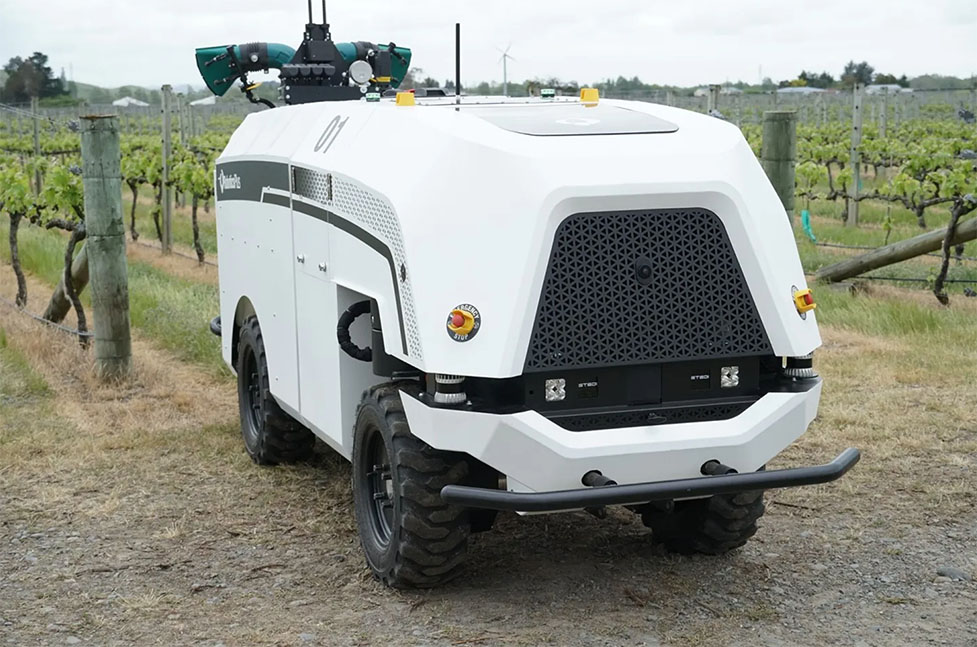This Autonomous Agricultural Robot May Revolutionize Farming

A New Zealand-based agritech company named Robotics Plus has created an autonomous multi-use, modular vehicle that has the potential of assisting with growing labor shortages and making agricultural tasks easier to manage.
According to a press release, a fleet of the autonomous robots can be supervised by a single human operator that uses a combination of vision systems and other technologies that sense its environment. Using those applications, the robot can perform tasks such as spraying, weed control, mulching, mowing and crop analysis at an optimal level.
The robotic vehicle was created to have a modular architecture through a collaboration between the Robotics Plus team and growers. “We’ve created a flexible agricultural platform with the power to adapt to different crop types with tools for various applications, providing year-round automation benefits and maximizing machine utilization,” Steve Saunders, Co-Founder and CEO of Robotics Plus said.
Ensuring that automation can be adopted for widespread use, the company developed “intelligent spraying”, which is the process where the system intelligently varies the flow rate to achieve uniform and efficient output rather than waste.

Aside from alleviating labor needs, the robot was made to have a small footprint, meaning it only operates when it needs to rather than turning on every second crop row or greater like current machines. With a hybrid electric diesel engine, it’s promised to deliver an impressive field performance.
“Electric drive motors give superior torque and control, whilst a Tier 4 diesel generator means the vehicle can operate for extended periods. Fuel consumption is minimized by electrically driving all systems, including tools. Regenerative braking and high-capacity batteries also extend efficiency and range,” Dr. Alistair Scarfe, Co-Founder and CTO of Robotics Plus explained.
The vehicle also has a lightweight design, an intelligent all-wheel-drive system, and independent wheel motors that ensure grip and control yet reduces ground compaction to protect the soil. Another highlight feature is its modular engineering, which makes it easy to service even if one part fails. Operators can simply swap out a module if needed.
Saunders further explains, “to adapt and thrive in a changing world and create a sustainable and competitive future in the agricultural and speciality tree crop sector – growers and orchardists need automation that solves real-world problems, reduces reliance on increasingly costly and hard-to-find machine operators and provides data-driven insights for informed decision-making.”






















